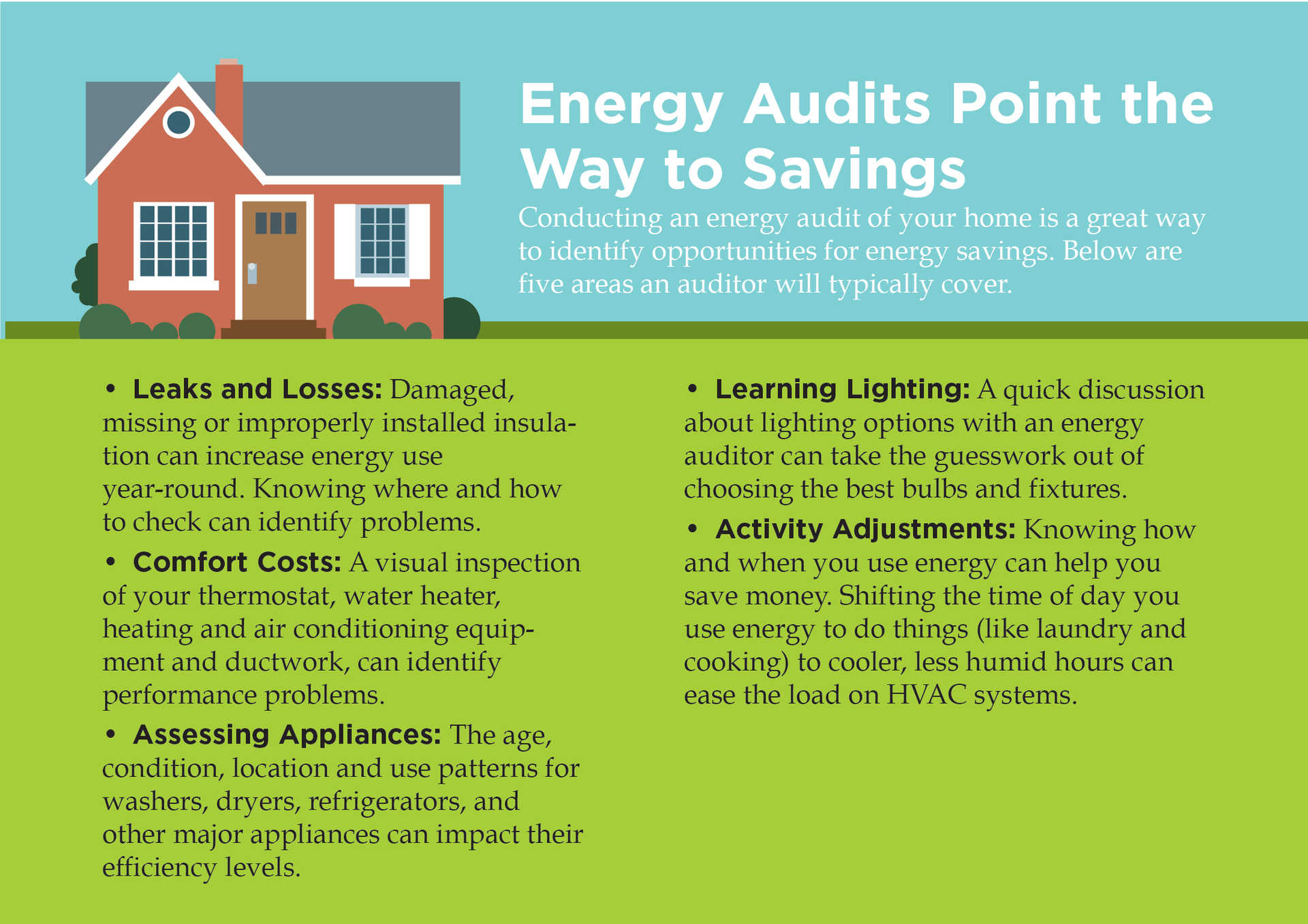By Derrill Holly
Better energy efficiency at home starts with savings, not sales, and an energy audit conducted by a trained energy advisor can help you get there.
“Members are our community and we are the experts in the electric energy arena,” says Manuela Heyn, an energy services representative for Gulf Coast Electric Cooperative, who is also a member of the Southport, Florida-based co-op. “We have the tools, knowledge and commitment to assist our people. Saving energy can also help shave peak loads.”
Heyn conducted her first energy audits with very basic tools: a flashlight, laser temperature gun and candy thermometer (to check water heater output temperature). She now has access to more sophisticated equipment such as thermal imaging equipment.
Members become frantic when they see a major increase in the power bill and want almost immediate answers as to why. In conjunction with experience and the ability to refer to meter data reports, the process of identifying major power consumption problems has been simplified and resolved in many instances in the office.
During on-site audits, she uses all her senses to find abnormalities such as hot water line leaks, running well pumps, damaged power cords, construction issues – one case leading to spongy drywall, disconnected ducts and lack of insulation to name a few.
She also checks household systems many homeowners seldom see or consider unless they spend time with their HVAC technician.
“One home I visited had an overflowing air handler water pan and extreme fungal growth” says Heyn. “Some members, particularly renters, don’t realize that their HVAC systems have an air filter. When they are dirty, they can freeze up the system and cause an increase in power consumption.”
Expert advice
Many electric co-ops that provide energy audits support professional development for energy advisors that includes exposure to building science concepts.
Training focused on both new construction techniques designed to improve energy efficiency and retrofitting options for upgraded older housing are common. Specialized training for multi-family units and manufactured housing are also common.
“By providing a picture of how energy is used in the home, people can concentrate on what can save them the most energy,” says Eileen Wysocki, an energy auditor with Holy Cross Energy, headquartered in Glenwood Springs, Colorado.
Wysocki starts with a baseload estimate of energy use based upon meter data. Talking with the consumer-member, she learns about household size and behavior patterns, and considers seasonal factors like heat tape used to prevent water lines from freezing.
“We have many ‘second homes’ in our service territory,” says Wysocki, adding that even when those homes are empty, energy use continues. “Fan coil blower motors, whole house humidifiers, boiler pumps, ventilation systems, driveway snowmelt pumps, pool pumps, hot tubs, garage heaters, heated toilet seats and towel bars are using energy, regardless of occupancy.”
The co-op serves Colorado’s popular ski areas around Aspen and Vail, and is currently designing a new audit form. It will stress benefits members can receive through efficiency upgrades, including comfort, said Mary Wiener, energy efficiency program administrator for Holy Cross Energy.
Co-ops that offer energy audits use the service to reinforce their roles as trusted energy advisors, helping members save energy in an effort to help them control their electricity costs.
While some co-ops provide audits free of charge, especially when they are requested in response to high bill concerns, others may charge a small fee, offering rebates to members who implement some of the recommendations provided.
Time spent with an energy auditor can help a member avoid ineffective upgrades or the purchase of outsized equipment that might not improve their comfort or produce savings through recoverable costs.
Offering solutions
An energy advisor’s home visit usually gets far more attention than a brief discussion about energy efficiency at a co-op district meeting, a county fair or other community event. Most audits are initiated following a request tied to high bill concerns, when members are really motivated to control their energy costs.
On average, a member can reduce their energy use by about 5 percent if they follow the low-cost or no-cost advice given during the audit. Additional savings of up to 20 percent can be achieved by addressing issues with big-ticket items, such as HVAC replacement, attic insulation or major duct repair discovered during the audit.
Improved energy efficiency not only helps the co-op control peak demand and wholesale power costs, it also provides opportunities to discuss services available to members. Those include rebates, weatherization programs and payment assistance.
To learn more about energy audits available to you, contact your local electric cooperative.
Derrill Holly writes on consumer and cooperative affairs for the National Rural Electric Cooperative Association, the national trade association representing more than 900 local electric cooperatives. From growing suburbs to remote farming communities, electric co-ops serve as engines of economic development for 42 million Americans across 56 percent of the nation’s landscape.





